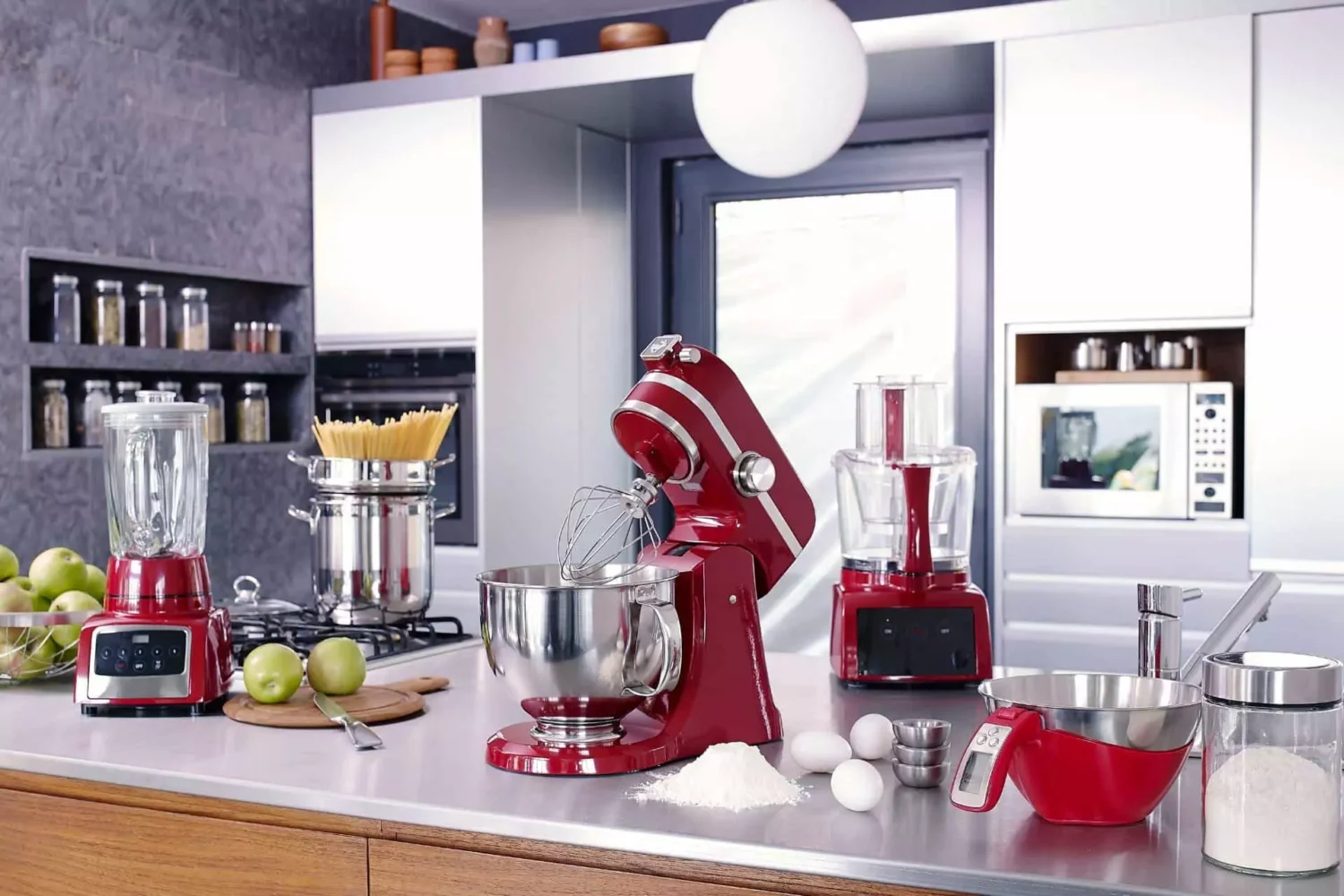
In an era where environmental consciousness is at the forefront of consumer priorities, energy efficiency has become a significant consideration when purchasing household appliances. Among these, kitchen appliances play a crucial role as they are used extensively in daily activities. From refrigerators and ovens to dishwashers and microwaves, modern kitchen appliances have undergone substantial advancements in terms of energy efficiency.
In this article, we explore the energy-saving features and technologies employed in such kitchen appliances, the impact of energy-efficient choices on both the environment and consumers’ wallets, and the ongoing efforts of the industry to promote sustainability in the kitchen. Let’s dive in.
The Evolution of Energy Efficiency
Over the years, kitchen appliance manufacturers have made great strides in improving energy efficiency. Traditional appliances consumed large amounts of electricity, leading to significant energy wastage and higher utility bills. However, advancements in technology and changing consumer demands prompted manufacturers to focus on reducing energy consumption without compromising performance.

Innovative features such as LED lighting, improved insulation, and intelligent sensors are now standard in many modern kitchen appliances. Energy Star certification, a program launched by the U.S. Environmental Protection Agency (EPA), has become an essential guideline for consumers seeking energy-efficient products. Other countries and regions around the world have also introduced similar labelling and certification programs to encourage the adoption of energy-saving appliances, including New Zealand.
How Do Today’s Kitchen Appliances Save Energy?
Refrigerators: Cooling with Less Energy
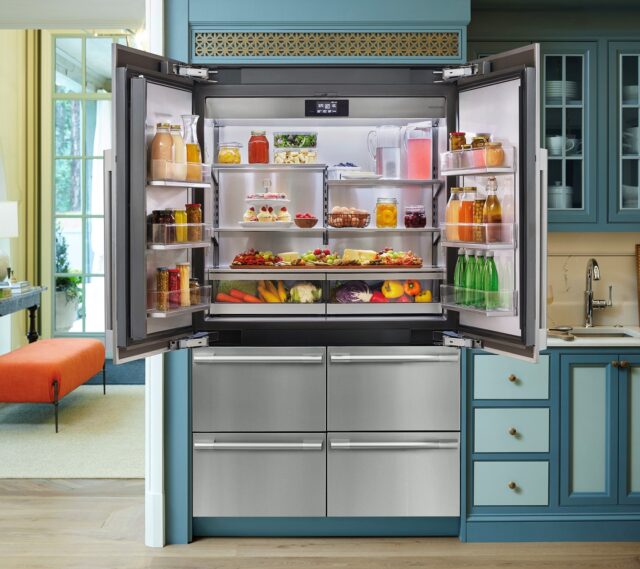
Refrigerators, as one of the most energy-intensive appliances in the kitchen, have seen substantial improvements in energy efficiency over the last decade. Modern refrigerators are now designed with better insulation, high-efficiency compressors, and adaptive defrosting systems that use energy only when needed. Many newer models also feature smart temperature controls that adjust cooling based on usage patterns and ambient conditions.
Moreover, the transition from incandescent bulbs to energy-efficient LED lighting in refrigerators has resulted in reduced energy consumption and longer-lasting illumination. Manufacturers have also introduced refrigerators with convertible compartments, allowing users to use only the necessary cooling space, further conserving energy.
Ovens and Cooktops: Precision and Efficiency
Energy-efficient ovens and cooktops are vital for sustainable cooking practices. Convection ovens, for instance, circulate hot air to cook food faster and more evenly, reducing overall cooking time and energy consumption. Induction cooktops use electromagnetic technology to directly heat the cooking vessel, offering faster heating and precise temperature control, thereby minimising wasted energy.
Programmable cooking features, pre-set cooking times, and quick preheating options are now common in many ovens, enabling users to save energy by avoiding unnecessary overcooking. Additionally, self-cleaning ovens now have more energy-efficient cleaning cycles, using lower temperatures and shorter durations compared to older models.
Dishwashers: Efficient Cleaning with Less Water and Energy
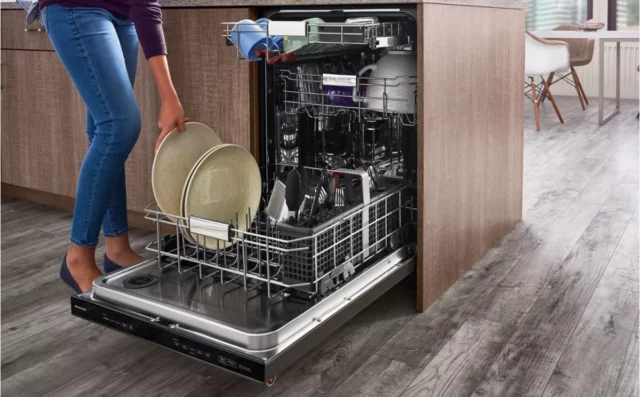
Another smart appliance is the energy-efficient dishwasher. It has made a significant impact on reducing water and energy consumption in the kitchen. This modern appliance uses advanced spray technology, soil sensors, and energy-efficient water heating to optimise cleaning performance while using minimal resources. Many dishwashers also offer eco-friendly modes that use less water and energy for lighter loads or when cleaning less soiled dishes.
Furthermore, improved insulation and noise-reduction technologies in dishwashers have not only made them more energy-efficient but also quieter, enhancing the overall kitchen experience.
Microwaves: Speed and Efficiency in Cooking
Microwaves have long been known for their quick cooking abilities, but modern designs have made them more energy-efficient too. Advanced microwave ovens incorporate inverter technology, which delivers precise power levels instead of cycling between full power and off. This feature ensures that food is cooked more evenly and efficiently, using less energy overall.
Additionally, the reduction of standby power consumption in modern microwaves helps further conserve energy when the appliance is not in use. Features like sensor cooking and defrosting like in the ovens also contribute to energy savings by automatically adjusting cooking times based on the food’s moisture and temperature levels.
Smart Kitchen Appliances: Optimising Energy Consumption
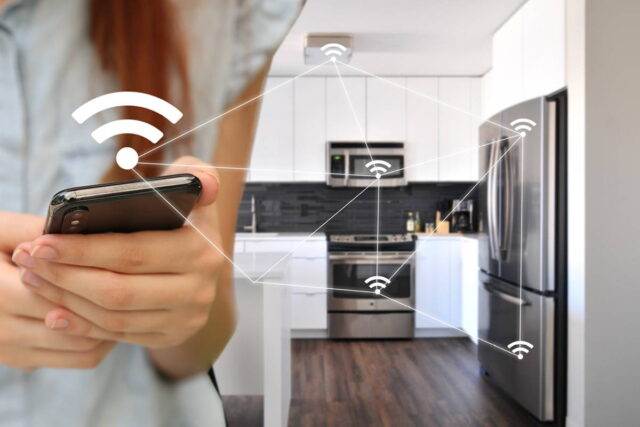
The rise of smart kitchen appliances has revolutionised the way we interact with and manage energy use in our kitchens. These appliances can be connected to home networks, allowing users to control and monitor them remotely through smartphone apps. Smart appliances offer features like energy usage reports, scheduling, and even integration with home automation systems, enabling users to make informed decisions about their energy consumption and optimise usage.
For instance, a smart refrigerator can send notifications about the door being left open or suggest energy-saving settings based on the contents inside. Smart dishwashers can delay cycles to run during off-peak hours when electricity rates are lower, maximising energy efficiency and cost savings.
The Consumer Impact: Benefits of Energy Efficiency
The adoption of energy-efficient kitchen appliances has numerous benefits for consumers, the environment, and society as a whole. By reducing energy consumption, consumers can significantly lower their utility bills over time. Although energy-efficient appliances may have a slightly higher upfront cost, the long-term savings on energy bills often outweigh the initial investment.
Moreover, using energy-efficient appliances helps reduce greenhouse gas emissions and reliance on fossil fuels, contributing to the global effort to combat climate change. With a growing emphasis on sustainable living, energy-conscious consumers are becoming more inclined to invest in products that align with their environmental values.
Future Innovations: The Road Ahead
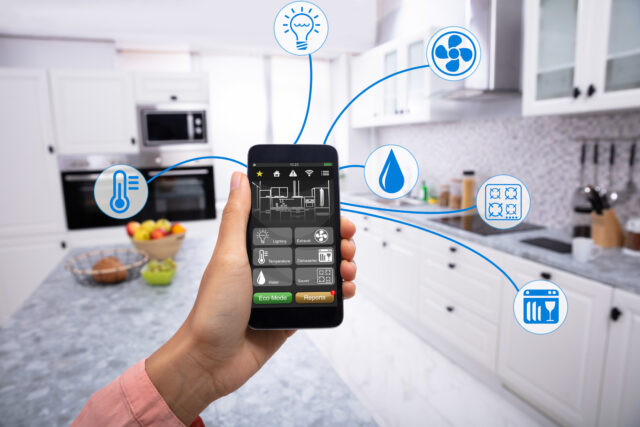
While significant progress has been made in improving energy efficiency in kitchen appliances, the industry continues to explore new technologies and design strategies to further reduce energy consumption. Manufacturers are focusing on enhancing communication and coordination between appliances within the kitchen to optimise energy use.
Furthermore, the integration of renewable energy sources into kitchen appliances is being explored to make them even greener. Solar-powered ovens and smart grid-compatible appliances are among the potential innovations that may shape the kitchen of the future.
Conclusion
As consumers become increasingly mindful of their environmental impact, the demand for energy-efficient kitchen appliances has grown significantly. Manufacturers have risen to the challenge, implementing innovative technologies and design strategies to create a wide range of energy-saving products. Modern kitchen appliances now offer a compelling blend of style, convenience, and sustainability. By making conscious choices and investing in energy-efficient kitchen appliances, consumers can contribute to a greener future while enjoying the benefits of reduced energy consumption and cost savings in their daily lives.














